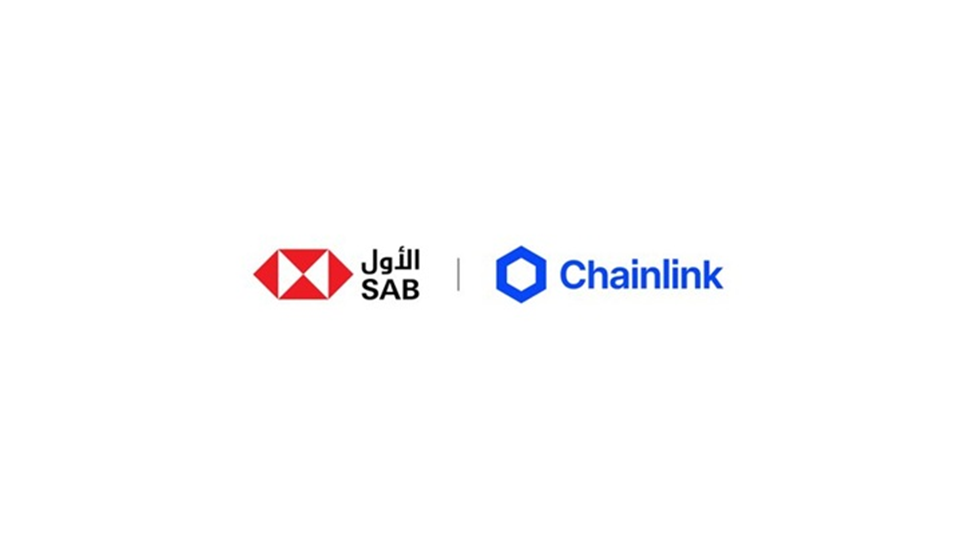Riyadh: Saudi Awwal Bank (SAB), one of the Kingdom’s most prominent financial institutions with assets exceeding $100 billion, has taken a major step into blockchain innovation through a new partnership with Chainlink, a global leader in blockchain infrastructure. The move aligns closely with Saudi Arabia’s Vision 2030, which aims to modernize the financial sector and accelerate the adoption of secure, regulated digital technologies.
The agreement, structured as an innovation partnership, will see SAB integrate two of Chainlink’s flagship technologies: the Cross-Chain Interoperability Protocol (CCIP) and the Chainlink Runtime Environment (CRE). Together, these tools will allow SAB to create next-generation, blockchain-powered applications for finance, with use cases ranging from tokenized asset transfers to automated international payments.
Bringing Blockchain to Saudi Finance
The Saudi financial system has been undergoing rapid transformation in recent years as regulators, banks, and technology firms push to modernize services while maintaining compliance and security. SAB’s adoption of Chainlink’s protocols marks one of the clearest signs yet that blockchain is moving from experimental pilots to practical, large-scale banking solutions in the region.
With CCIP, SAB will be able to transfer assets and data seamlessly across different blockchains, ensuring interoperability between private banking systems and public networks. This capability is critical for building a digital financial ecosystem that can handle international settlements, cross-border trade, and the tokenization of assets in a compliant manner.
The CRE platform adds another layer of value. It provides a decentralized environment for managing validated workflows that bridge both blockchain and traditional infrastructure. By leveraging CRE, SAB will be able to create customizable, traceable financial workflows that reduce the heavy reconciliation tasks banks currently face, while improving transparency across the system.
In practical terms, this could mean digitized deposits, automated settlement of international transactions, and streamlined processes in capital markets — all areas where traditional banking has often been slowed by outdated systems and fragmented processes.
Part of a Global Shift
SAB’s decision mirrors a broader trend among global financial giants exploring blockchain’s potential. JPMorgan has already piloted interbank transfers using its Onyx blockchain network, while Société Générale has launched tokenized bonds on Ethereum. By joining forces with Chainlink, SAB is aligning itself with these early movers and signaling Saudi Arabia’s intention to play a leading role in the blockchain transformation of global finance.
The partnership also builds on SAB’s earlier collaboration with Wamid, a Saudi company exploring capital market tokenization. These projects are part of a wider national effort to position Saudi Arabia as a regional hub for compliant digital asset innovation and to diversify the economy in line with Vision 2030 goals.
Market Confidence in Chainlink
The timing of the deal coincides with a surge of confidence in Chainlink’s market performance. Over the past year, the blockchain firm’s native token, LINK, has risen 117.5%, trading recently at $23.16. Market analysts such as VirtualBacon expect LINK could reach as high as $52 before year-end, pointing to Chainlink’s transition from its early role as a DeFi oracle to a foundational provider of infrastructure for institutional clients and real-world assets.
This optimism is further fueled by Chainlink’s expanding partnerships. The company has recently joined Aethir’s AI Unbundled Alliance and integrated with Bitlayer’s Bitcoin Layer 2 ecosystem, extending its relevance beyond DeFi and into emerging areas such as artificial intelligence and Bitcoin-based scaling solutions.
Chainlink already secures $62.9 billion in total value and supports over $25 trillion in transaction volume through its oracle systems. These figures underscore the scale of the infrastructure SAB is tapping into, and the confidence institutions have in its reliability.
Vision 2030 and the Road Ahead
Saudi Arabia’s Vision 2030 emphasizes not only economic diversification but also the creation of a forward-looking digital economy. By adopting Chainlink’s technology, SAB is contributing directly to this vision, building the foundations of a financial system that is safer, more efficient, and globally interconnected.
For consumers and businesses, the benefits could be significant. Faster international transfers, reduced transaction costs, improved security of tokenized assets, and streamlined capital market operations are just some of the practical outcomes that could emerge from this partnership.
At a regional level, SAB’s efforts may serve as a blueprint for other banks in the Gulf Cooperation Council (GCC), which are watching closely as blockchain adoption accelerates worldwide. If successful, SAB’s integration of Chainlink’s CCIP and CRE could pave the way for a more unified regional framework for onchain finance, enabling the Middle East to compete with Europe, Asia, and the United States in this rapidly advancing sector.
A Convergence of Traditional and Decentralized Finance
The SAB–Chainlink partnership is more than a technology upgrade — it represents a convergence between mainstream banking and decentralized networks. By focusing on interoperability, safety, and compliance, SAB is bridging the gap between traditional finance and blockchain, while demonstrating how legacy institutions can embrace disruptive technology without compromising regulatory standards.
As blockchain adoption gains momentum, Saudi Arabia is positioning itself at the forefront of digital financial innovation. With SAB leading the charge, the Kingdom could emerge as one of the first markets to demonstrate how large-scale, regulated banks can harness blockchain not just for experimentation, but for real, system-wide transformation.




























